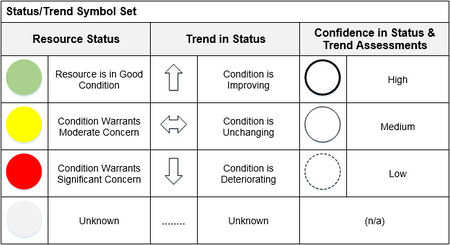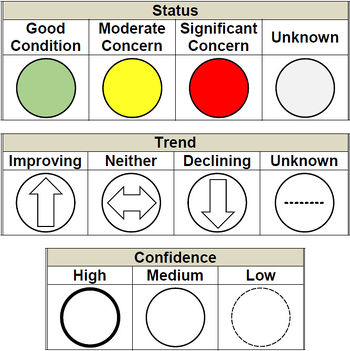2017 Knowledge Assessment
|
|
2017 Knowledge Assessment (KA)Knowledge assessments are a standard tool in adaptive management, with two purposes: (1) They assess the state of knowledge concerning:
(2) They identify areas of uncertainty in this knowledge that the adaptive management team may want to address through additional investigations, including but not limited to field monitoring or research. The present (FY 2017) knowledge assessment is timed to coincide with and inform the Annual Reporting process and development of the next GCDAMP Triennial Work Plan for FY 2018-2020. This knowledge assessment is testing a methodology for better organizing, displaying, and communicating its findings, potentially to carry forward to guide future knowledge assessments as well. [1] |
| -- |
-- |
-- |
|---|
You all are invited to participate in a webinar regarding the preliminary results of the western science portion of the Knowledge Assessment (KA). The details are as follows: Date and time: (Thu) April 6, 8-11 am Pacific / 9a-12n MDT / 10a-1p EDT Phone #: 1-877-913-4721 Passcode: 3330168# The purpose of the webinar is to share the preliminary results of the assessment in advance of the April TWG meeting where we will be discussing the Triennial Work Plan and Budget (TWP) and to obtain your feedback. The KA was partly intended to be used by the TWG to help with the development of the TWP and I am hopeful that you all will find it to be a useful tool.
Drivers and Constraints Key
Effects of Experimental and Management Actions Key
Status and Trends Key |
|



